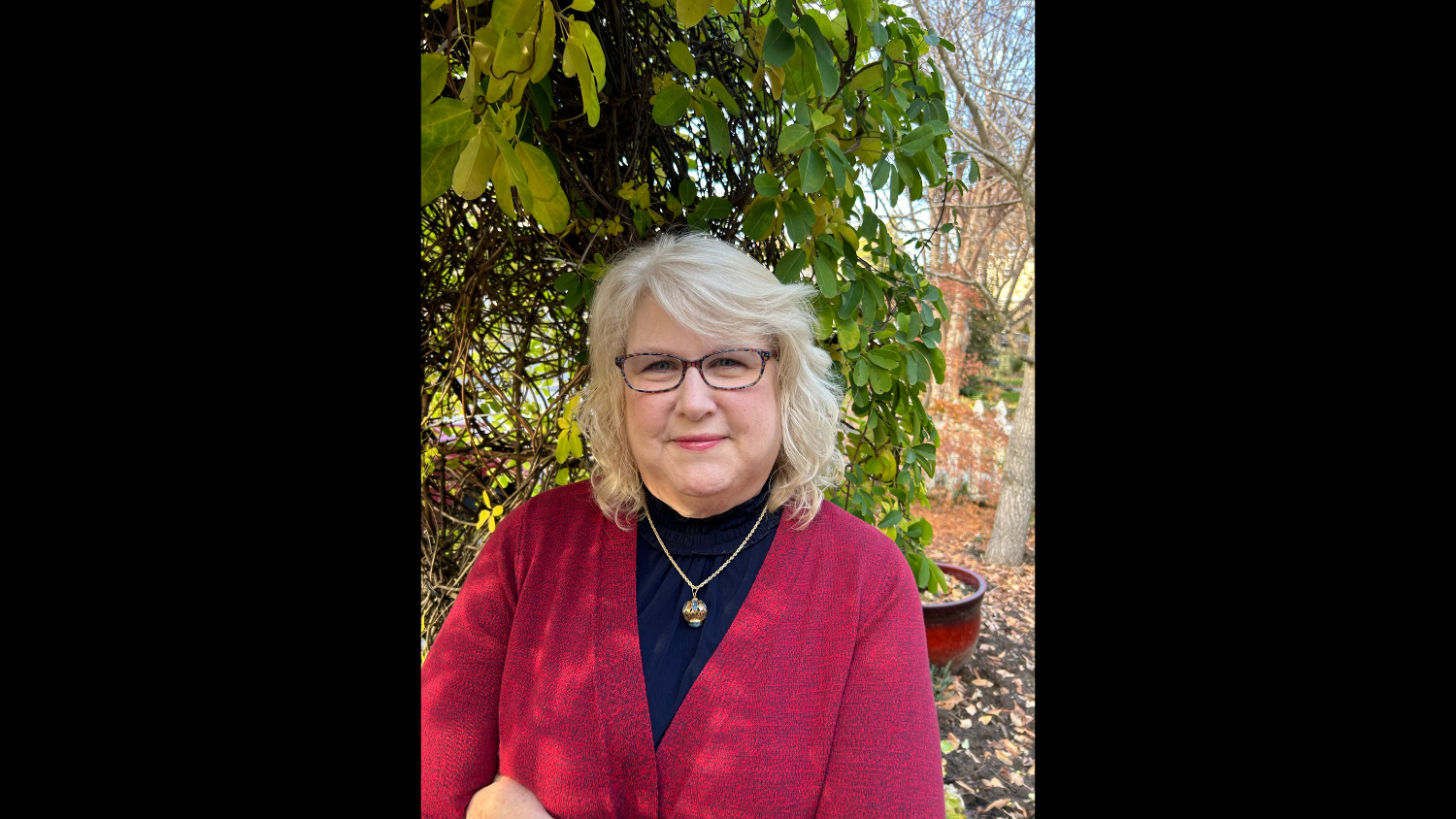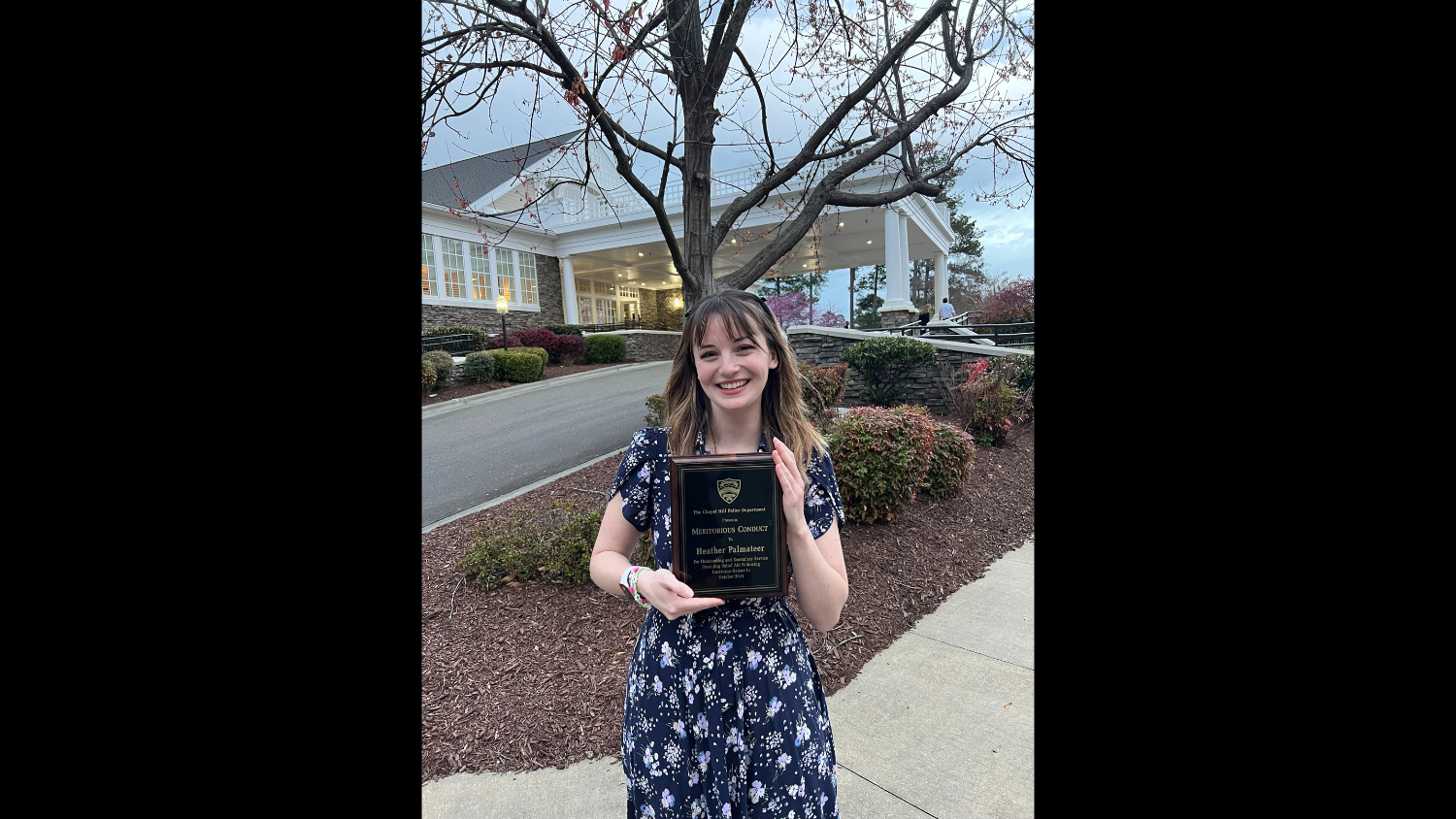Research Gives Social Work Student New Perspective
Katherine McCallister’s interest in social work is clear:
“I want to help improve the communities I’m a part of,” she says.
Through undergraduate research at NC State, the social work major assisted with research that lends insight to a core component of any community — families.

Katherine McCallister in her cap and gown. Photo credit: Katherine McCallister.
The study McCallister helped with related to the effects of parent involvement on children who are in informal kinship care.
“Basically, we wanted to look further at children who are being raised by a relative other than their birth parent — a grandparent, aunt, uncle, for example,” said McCallister, who graduated as valedictorian of the social work class from NC State in December.
The research, which used secondary data from the Fragile Families and Child Well-being Study , focused on how parental involvement impacted the emotional and behavioral well-being of children living in informal kinship care. The study looked at internalizing behaviors, like depression and anxiety, and externalizing behaviors, like acting out and aggression.
The researchers found that there were positive associations between maternal and paternal involvement and child internalizing and externalizing behaviors.
“In an informal kinship care situation[among the current sample], the more a birth parent is involved, the higher likelihood of children to become depressed or anxious,” McCallister said.
“There are a few speculated reasons for this: sometimes the child gets confused when their birth parent comes — ‘Should I listen to mom or grandma?’ ‘Who is in charge?’
“Sometimes the parent promises to come for the weekend, or birthday party and doesn’t show,” McCallister continued. “The child might lash out in disappointment.”
As a research assistant, McCallister worked under social work professor Qiana Cryer-Coupet. As part of her responsibilities, she reviewed literature pertaining to the subject area, compiled detailed summaries and provided them to Cryer-Coupet. From this, the researchers created a thorough literature review for the study.
McCallister also synthesized the study into a poster and presented it at the 2016 NC State Undergraduate Research Symposium, which she described as “nerve-racking and really fun.”
“I greatly enjoyed the research experience,” McCallister said. “I am thankful to have attended a university that supports and encourages students to pursue their goals in further education.”
During her sophomore year, McCallister took a class on research methods for social workers. “This is the dreaded class for social work students,” McCallister said. “But I loved it. I’ve always liked statistics, math, data analysis … so I really enjoyed learning about research.”
I greatly enjoyed the research experience. I am thankful to have attended a university that supports and encourages students to pursue their goals in further education.”
— Katherine McCallister
She was steered to research through her own desire to be involved on campus. She reached out to many of her past professors to ask what opportunities they had available, and was rewarded by a research position with Cryer-Coupet.
“Dr. Cryer-Coupet told me about her study and encouraged me to get involved. She assisted me in applying for an Undergraduate Research Award, which I was happy to receive,” McCallister said.
The research awards, a component of the Provost’s Professional Experience Program, are designed to assist students who are working with faculty on research.
After participating in the study, McCallister worked until her graduation in a field internship with Family Promise of Wake County, an emergency homeless shelter for families.
“With a lot of homeless shelters, it is hard to keep the whole family together,” McCallister said. “However, due to the unique structure of Family Promise, we are able to keep entire families unified.”
Most of her duties related to case management, and she worked closely with three families. McCallister’s job was to connect them with local resources and help empower them to move toward stable housing.
“[Social work] allows me to advocate for people who are oppressed, put down and whom society has forgotten about.”
Outside of social work, McCallister was involved in Alpha Phi Omega, a service fraternity on campus.
Since earning her degree, McCallister has been hired by Cryer-Coupet as a research assistant on two fatherhood studies, and will start graduate school in the fall. Her long-term goals include pursuing a career in higher education, research or academia, with a focus on social justice and advocacy.
- Categories:


